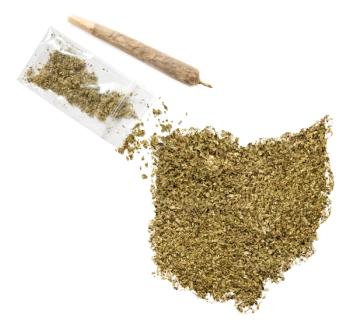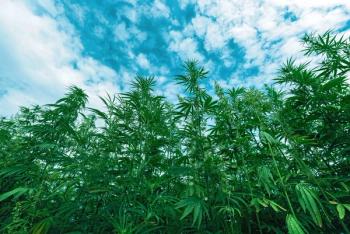
Luxembourg Legalizes Cannabis
Near the end of June 2023, Luxembourg joined other countries in legalizing adult-use cannabis.
Luxembourg became the second European Union member nation to legalize adult-use cannabis (1). Through their new reform laws, cannabis possession and personal use cultivation are legalized. With this new legislation, adults can now grow up to 4 plants and possess up to 3 grams. Public use is still banned, and individuals could be fine anywhere between $27 - $500. The law passed 38-22 (2).
Minister of Justice Sam Tanson mentioned that, “The cultivation, from seeds, of four cannabis plants per domestic community is authorized for adults. As a corollary, personal consumption in the private sphere is authorized. The place of cultivation must be either the domicile or the habitual residence and the plants must not be visible from the public road. At the same time, a simplified criminal procedure is introduced for certain behaviors which remain prohibited, namely the consumption, possession, transport and acquisition in public, for their sole personal use, of a maximum of three grams of cannabis by adult persons,” (3)
In October 2021, cannabis cultivation was legalized for adults, but lawmakers had not codified the rules or agreed on personal possession limits. This led to a delay in implementing the reforms. In order to take effect, the new law must be published in the Official Gazette.
Luxembourg legalized medical cannabis in 2018. It also decriminalized cannabis in 2001.
In 2021, Malta became the first European Union country (1) to legalize cannabis for recreational use. They also created a legal framework for cannabis social clubs. Officials have still not issued any cannabis club licenses. In regard to Luxembourg, they have not formed any channels for legal sales or social use yet.
Luxembourg’s Josée Lorsché, a Green Party member of the Judiciary Committee, hinted that the country’s next move will be to establish regulated systems for cannabis production and for sales to be managed by the government.
According to the Ministry of Justice’s recent statement (4):
“On July 17, 2023, the law of July 10, 2023, amending the amended law of February 19, 1973, concerning the sale of medicinal substances and the fight against drug addiction, providing for the legalization of the domestic cultivation of cannabis under certain conditions, has been published in the Official Journal. It will enter into force on the fourth day following the day of its publication, i.e. Friday, July 21, 2023.”
References
- Branfalt, T. Luxembourg Finalizes Cannabis Legalization Reforms
https://www.ganjapreneur.com/luxembourg-finalizes-cannabis-legalization-reforms/ (accessed Jul 19, 2023). - Sabaghi, D. Luxembourg Legalizes Cannabis for Personal Use
https://www.forbes.com/sites/dariosabaghi/2023/06/29/luxembourg-legalizes-cannabis-for-personal-use/?sh=4556c9ac1ce8 (accessed Jul 19, 2023). - Jaeger, K. Luxembourg Parliament Votes to Legalize Marijuana Possession and Cultivation, Making It Second EU Country to End Prohibition
https://www.marijuanamoment.net/luxembourg-parliament-votes-to-legalize-marijuana-possession-and-cultivation-making-it-second-eu-country-to-end-prohibition/ (accessed Jul 19, 2023). - Jaeger, K. Luxembourg’s Marijuana Legalization Law Will Take Effect This Week, Government Says
https://www.marijuanamoment.net/luxembourgs-marijuana-legalization-law-will-take-effect-this-week-government-says/ (accessed Jul 19, 2023).
Newsletter
Unlock the latest breakthroughs in cannabis science—subscribe now to get expert insights, research, and industry updates delivered to your inbox.





